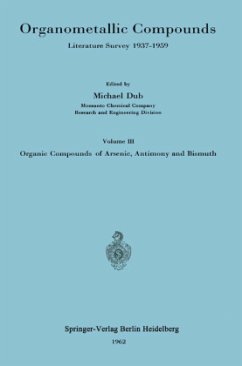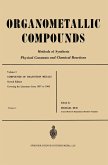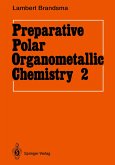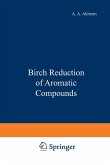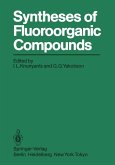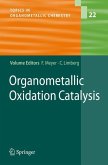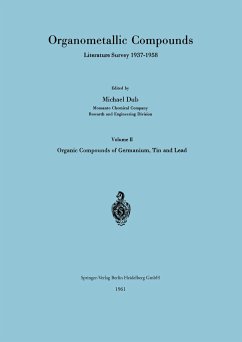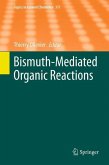___ -"S,. . C"'O,. . . P""E This non-critical compilation of literature data on organic drivatives of arsenic, antimony, and bismuth, reported after 1936, was prepared to provide an easy reference to the methods of their synthesis and to their physical and chemical properties. Biological properties of the organic derivatives of these three elements were not considered. The presence volume is based upon Chemical Abstracts (CA), Volume 31 (1937) through Volume 53(1959), and upon "Current Chemical Papers," published by the Chemical Society (London), issues for January through June 1960. For references published prior to 1937 the reader is referred to "Die Chemie der metall-organischen Verbindugen/' by E. Krause and A. vor. Grosse, Verlag von Gebrlider Borntraeger, Berlin, 1937. It should be pointed out that only compounds containing at least one carbon arsenic, carbon-antimony, and carbon-bismuth bond, respectively, are included in the survey. HIGHLIGHTS The discovery of the chemotherapeutic efficacy of monosodium- arsanilate, 3,3'-diamino-4,4' -dihydroxyarsenobenzene, and 3-amino-4,4'-dihydroxy-3' (sulfinomethylamino)arsenobenzene sodium salt (Atoxyl, Salvarsan, and Neosalvarson, respectively) provided inpetus to extensive research of organoarsenicals, which slakened only after the discovery of antibiotics. After 1936, a great variety of substituted arenearsonic and diarylarsinic acids was prepared and reduced to various types of trivalent arsenic derivatives, Further modifications of the Bart method were made, and aryldiazonium fluoroborates, chlorozincates, and chloroferrates, which are more stable than aryldiazonium chlorides, were introduced as the arylat ing agents in the preparation of aromatic derivatives of arsenic.
Hinweis: Dieser Artikel kann nur an eine deutsche Lieferadresse ausgeliefert werden.
Hinweis: Dieser Artikel kann nur an eine deutsche Lieferadresse ausgeliefert werden.

